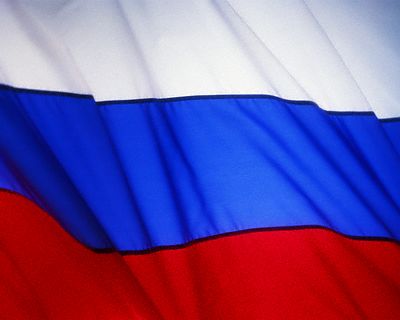
US President Barack Obama heads to Moscow July 6-8. With his trip just six weeks off, and the new American administration still crafting a foreign policy, newspaper pundits, including the author of this column, are scribbling. Opinions abound, but almost all agree that it is time for Obama to step “Beyond the “Reset Button.'”
That is the title of an article by Samuel Charap, writing for the Center for American Progress, a left-of-center Washington think tank. Charap proposes a package of strategic goals and outlines the reasons for a new approach. “Under both Presidents Bill Clinton and George W. Bush,” he writes, “US-Russia relations vacillated between declarations of strategic partnership and periods of cold peace, featuring condemnations of the other side’s actions and mutual recriminations.”
Charap continues, “‘Reset’ is not a Russia policy, let alone a strategy. Instead, it is a tactic: an attempt to improve the atmosphere of the relationship.” Quite right. If Obama continues to rely primarily on atmospherics, US-Russia relations will devolve into a game in which Washington draws cards from a deck held by Moscow.
The makings of this are already apparent in the White House press release announcing Obama’s Moscow trip: “The summit meeting will provide an opportunity for the United States and the Russian Federation to deepen engagement on reducing nuclear weapons, cooperating on non-proliferation, exploring ways to cooperate on missile defense, addressing mutual threats and security challenges, and expanding the ties between American and Russian society and business.”
Without setting objectives, priorities and expectations—that is, devising a strategy—Moscow’s current pattern of behavior will disappoint Washington, eventually plunging the two countries into the hot-cold cycle that Charap decries. Instead, he proposes a six point strategy:
- Making Russia a part of the solution to significant international problems;
- Preparing to confront the challenges presented by both an assertive Russia and a declining Russia;
- Bolstering our energy security and that of our allies;
- Creating a secure environment in the post-Soviet region;
- Encouraging the emergence of a full-fledged democracy in Russia;
- Integrating Russia into the international community and global economy.
One could hardly object. However, this is an unabashed American agenda, bound to fail unless America’s people and allies are thoroughly prepared to stay the course over what will be at least Obama’s current presidential term.
But American culture demands quick solutions to any problem, and, lately, America’s West European allies have become even more impatient. Consequently, absent a clear, coherent policy, people will be to varying degrees attracted to solutions that sacrifice principle and genuine interest for apparent progress.
In America, these often take the form of so-called realist, actually pseudo-realist arguments. They commonly emphasize the first of Charap’s points, for example, that we need Russia’s help on Iran or Afghanistan, de-emphasizing objectives such as democracy, human rights and the sovereignty of Russia’s neighbors. Be realistic, proponents of this view say, countries like Georgia are in Russia’s back yard so there is not much we can do. Besides, thwarting the Iranian nuclear weapons program is more important.
Do not misunderstand—this is not Obama’s position. When Vice President Joe Biden spoke at the Munich Security Conference, when Secretary of State Hillary Clinton handed a toy “reset button” to Russian Foreign Minister Sergey Lavrov in Geneva, and when Obama met Russian President Dmitry Medvedev in London, the Americans expressed clear support for Georgia and disagreement with Russia.
The concern is that this stance could crumble if Washington does not elaborate more of a Russia strategy than the White House now has, indeed more than the one Charap suggests. For example, both countries are committed to concluding by year’s end a follow-on to the 1991 Strategic Arms Reduction Treaty. What will happen when the new year is nigh and—Russians are masters at eleventh-hour diplomacy—there is no arms control treaty? Or if things get tougher in Afghanistan, but supplies are yet only trickling through Russia?
Pressure in Washington will mount for “realist” concessions unless there is guidance from a clear, comprehensive Russia strategy.
Charap’s goals would be a good beginning. Next, America must decide its priorities. Supporting democratic allies like Georgia and bolstering energy security are more important than signing another arms control agreement. Then, America must realistically assess what to expect from Russia and when. Thwarting Iran’s nuclear weapons program is important, however, Moscow has neither the interest nor the influence to help significantly. Integrating Russia into the global economy may be possible, but it will take time.
Finally, a Russia policy must rest upon a solid democratic foundation.
“Let’s not tire of affirming that individual liberty is a universal value and that democracy is the best way to protect freedom and human rights,” writes Radio Free Europe/Radio Liberty President Jeffrey Gedmin in the New York Times. Make no mistake—this is a realist, not an idealist notion. “Opportunistic deals with dictators not only betray our values; they seldom deliver over time on those very interests we claim to be pursuing.”
David J. Smith is Director, Georgian Security Analysis Center, Tbilisi, and Senior Fellow, Potomac Institute for Policy Studies, Washington. This column appeared in 24 Saati (24 Hours), Tiblisi’s major newspaper.
Image: STOCK%20-%20Russia.jpg
